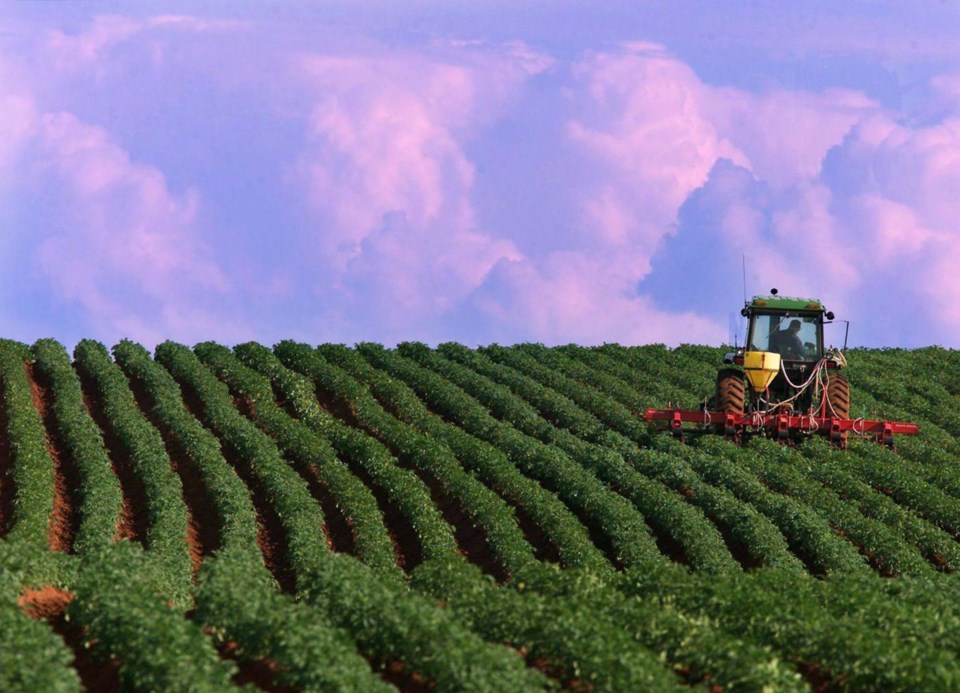Prince Edward Island potato growers and marketers say the time is ripe for a campaign in the United States to warn consumers that tariffs will hike their grocery bills.
They are issuing their call as U.S. President Donald Trump threatens to impose 25 per cent tariffs on Canadian goods as early as Feb. 1, a move that could devastate the province's major industry.
Greg Donald, general manager of the P.E.I. Potato Board, says over half of the Island's potatoes are shipped to the U.S., bringing $250 million to the industry annually, and there isn't any clear alternative if the U.S. market is no longer viable.
“What else are we going to do? We don’t have minerals, energy or oil in P.E.I. … We need to export our potatoes and it makes the most sense to supply the Americans. We don’t have a lot of other options,” he said in a recent interview.
Jennifer Harris, owner of Island Growers Co., said in an interview that it needs to be made clear to Americans that the food supply chain can't be replaced overnight, and that the short-term impact of tariffs would be price increases.
Harris — whose firm markets P.E.I. spuds to U.S. wholesalers and retailers — says the prime minister and all the country's premiers should unite behind an American advertising campaign detailing what will happen if Trump makes good on his threat.
She says a recent P.E.I. mission to New England delivered this message to retailers, but she adds "everyday U.S. citizens" who are struggling to pay bills need to hear it as well.
“I think we're missing the mark on communicating to American citizens that if these tariffs come into place, you are going to see it in the grocery store,” she said.
Ray Keenan, a potato farmer in Souris, P.E.I., said the relationship between the Island's growers and New England markets is historic and benefits both sides of the border.
"It's a trading relationship that goes back hundreds of years and it's mainly because of our geographic location. We're blessed to live in an area that's relatively close to the market, and our freight rates are much lower than competitors from Idaho," he said in an interview Friday.
"I think it's important that the provinces and the business community keep telling our story to our American customer base. Our customers will be hurt as badly as we will be (by tariffs)," he said.
Donald Killorn, director of the P.E.I. Federation of Agriculture, said in an interview Friday he believes Trump's threatening messages are partly designed to force concessions from Canada on trade and other issues, and he remains unconvinced the tariffs will become reality.
However, he says an advertising message about the risks of inflation to Americans should be spearheaded soon by the premiers and the prime minister to clarify the "upside" of trade with Canada and the negative consequences of the tariffs on food costs.
“I hope that Canada has the sophistication to be targeting communities in the United States where opinion is extremely important to the president,” said Killorn.
Jon Hurst, president of the Retailers Association of Massachusetts, said in a telephone interview that he would encourage Canadian governments to educate the U.S. public about the risks of tariffs, and also to explain that Canada is not a significant source of illegal immigration to the United States.
Hurst, whose group represents 4,000 retailers and restaurants in his state, said that when he met with the P.E.I. delegation during their recent visit he found it useful to receive information about the benefits of Canadian trade and basic facts about the low levels of illegal immigration from Canada into the United States.
"Education on the cost of tariffs are important, and I also think education on the reality of what's happening on the northern border as opposed to the southern border is important as well," he said.
This report by The Canadian Press was first published Jan. 24, 2025.
Michael Tutton, The Canadian Press




